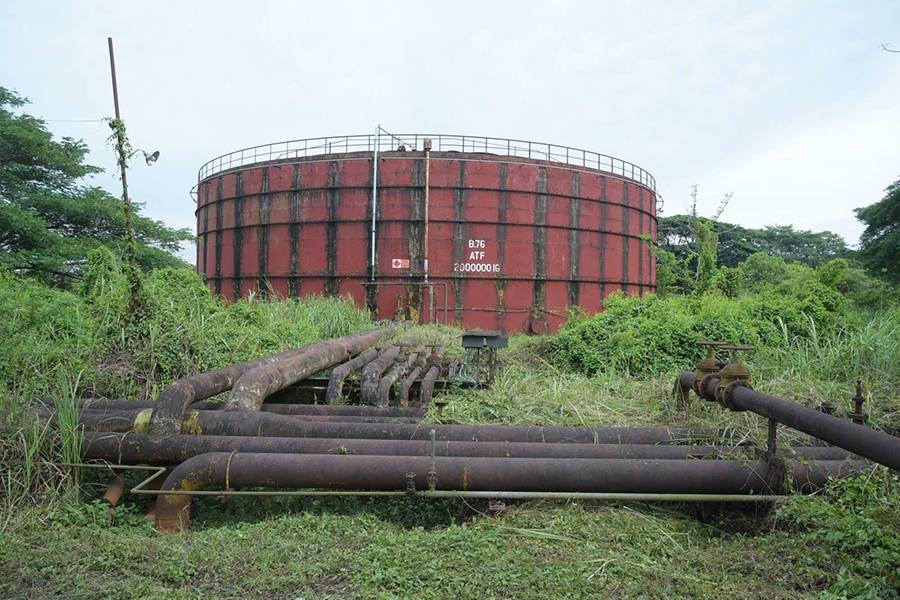The Myanmar junta is pressing ahead with a plan to reopen a disused oil refinery in Yangon’s Thanlyin Township, which a state-owned Indian company has expressed an interest in taking over.
Military-controlled newspapers said that the Indian Oil Corporation Ltd (IOCL) has a plan to build a new refinery on the site of the No. I Oil Refinery Compound in Thanlyin Township. The new plant will be capable of refining ten million tonnes of crude oil annually.
The project was first proposed last year during an official visit to Myanmar by India’s Foreign Secretary Harsh Shringla and Indian army chief MM Naravane. Indian media suggested that the new refinery would be a US$6 billion project. So far, though, IOCL has yet to announce an update of the planned project.
U Aung Than Oo, the junta-appointed Minister for Electricity and Energy, said on Monday that the Thanlyin refinery had been shut since 2017 as it was not commercially viable. He added that the plant needed to be repaired and put back into operation as soon as possible to help meet the domestic demand for fuel.
The move to revive the old refinery comes after coup leader Senior General Min Aung Hlaing visited the Thanlyin compound in late April. Snr-Gen Min Aung Hlaing told officials to strive to re-open refineries to help solve Myanmar’s urgent need for fuel.

Myanmar is heavily reliant on imported gasoline and diesel. Currently, the Chauk Refinery in Magwe Region is the only refinery operating in Myanmar, and it is only capable of refining 6,000 barrels of oil per day.
On average, Myanmar imports five to six medium-range tankers worth of gasoline cargoes per month, most arriving from Singapore, the region’s largest oil trading hub.
But since the junta’s Feb. 1 coup, the country has been in danger of possible fuel shortages with banks and government departments forced to close because thousands of their workers have joined the nationwide civil disobedience movement and gone on strike in protest at the military regime.
Myanmar’s currency has also depreciated against the US dollar, while the political and economic crisis, and the threat of potential sanctions, means that oil companies have become cautious about supplying fuel to Myanmar.
The state-owned Thanlyin refinery was constructed in 1955 on nearly 1,700 acres of land and was formerly capable of processing 20,000 barrels of oil per day. The refinery’s terminal was also able to receive up to 2 million tonnes of crude oil via the China-Myanmar oil and gas pipeline.
But in 2017 the refinery was closed after lawmakers demanded a stop to the operations of loss-making, government-owned factories in an effort to cut down the budget deficit.
In 2018, the Ministry of Electricity and Energy promised to upgrade oil refinery projects, including the Thanlyin refinery, in partnership with the private sector under the Public Private Partnership scheme. At that time, many companies, including some from India and Japan, expressed an interest in investing in Myanmar’s refineries.
U Aung Than Oo called on the workers of the No 1 Oil Refinery to return to work as quickly as possible to maintain the Thanlyin plant. He said that the refinery staff must strictly abide by the public service personnel law, as well as rules and regulations saying that the refinery needs to be open to meet the demands of factories.
He also ordered officials to maintain the jetty at the refinery for work operations.
You may also like these stories:
Deadly Attack on Pipeline Station Spotlights China’s High Stakes in Myanmar
TNLA, MNDAA Claim to Have Killed Dozens of Myanmar Junta Troops in Shan State
Striking Education Staff Fired by Myanmar Junta

















